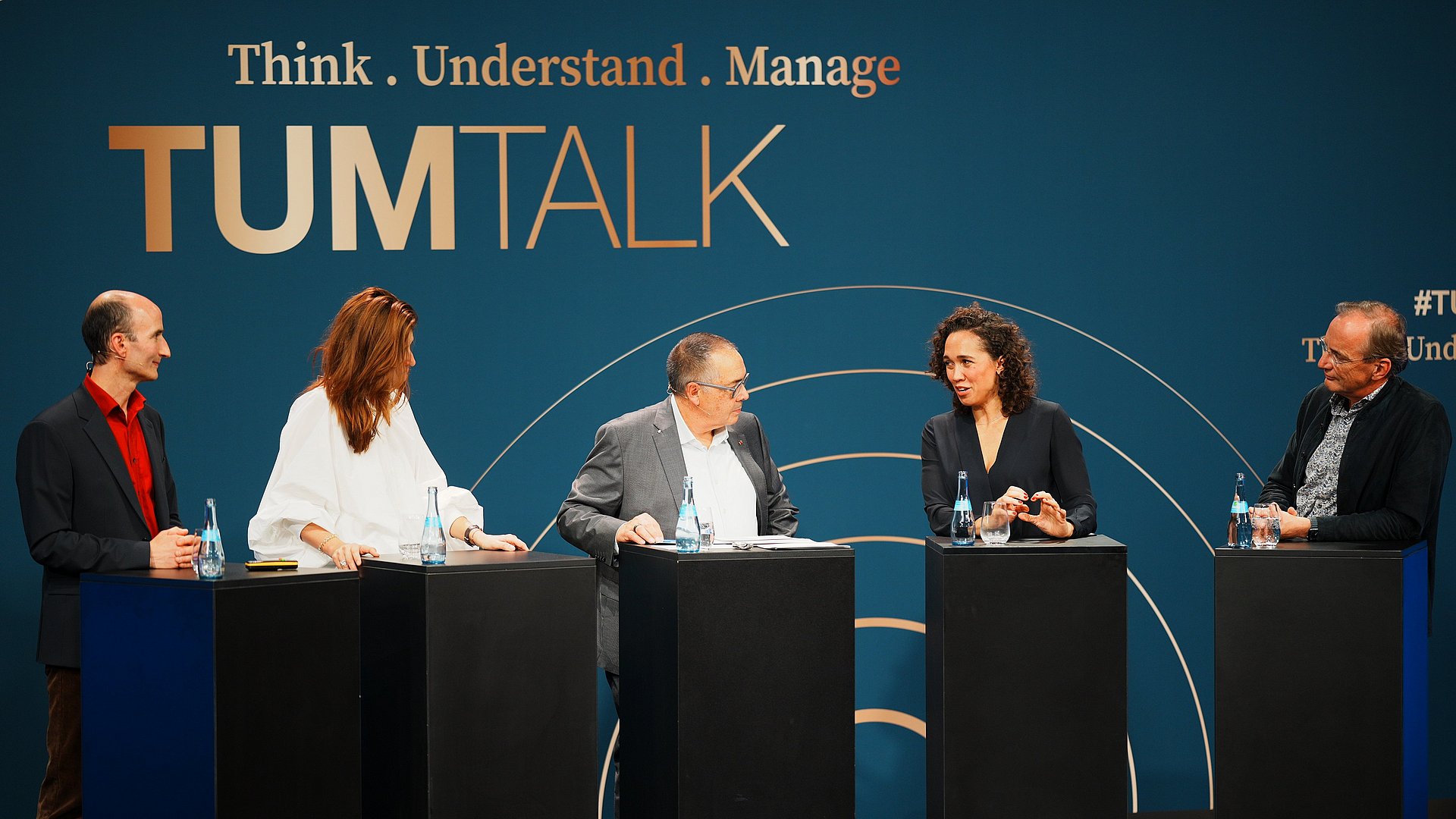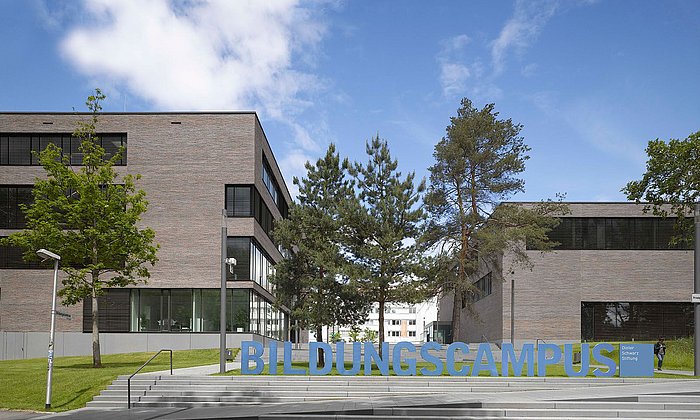TUM Talk at the Campus Heilbronn
Confidence for mid-sized businesses

Given the current wars, crises, and debates over Germany’s economy, it's easy to make pessimistic forecasts. The fifth TUM Talk at the Campus Heilbronn deliberately set a counterpoint to this and collected strategies for a confident outlook. “The world belongs to those who want to shape it,” said Prof. Thomas F. Hofmann, President of the Technical University of Munich (TUM), at the start of the panel discussion. The common thread among the invited guests from science and industry: “They are all convinced that the future will not wait for us,” said Prof. Helmut Krcmar, Delegate Officer of the President for the TUM Campus Heilbronn until the end of September and moderator of the discussion round.
The panel unanimously agreed that a strong internal compass is crucial. “You have to be an optimist,” said Christine Steger, CEO of cosmetics manufacturer Mann & Schröder, “you don't become one if you don't have that attitude.” However, the panel emphasized that this is not about ignoring specific problems. What is important is the conviction that you can get the best out of even difficult phases. At the family-run company in the Heilbronn region, for example, focusing on sustainability has created a framework that has achieved remarkable results despite numerous changes, according to Steger.
The certainty that everything that exists can be made even better “drives us as scientists and it's the same for companies,” said Prof. Daniel Cremers, Chair of Computer Vision and Artificial Intelligence at TUM. This perspective is fundamental for corporate management, but also for all other levels in a company. “We have to ensure that ambition becomes a prerequisite for employment,” said Dr. Gerald Karch, CEO of the heavy-duty logistics specialist TII Group. He believes that family-run medium-sized companies have an advantage when it comes to taking rapid and decisive steps into the future: “If a family of entrepreneurs is behind an idea, they can see it through,” said Karch.
AI is arriving in the core business
For the multitude of crises, companies today also have a multitude of tools at their disposal with which the future can be shaped. Artificial intelligence (AI) is gradually arriving in medium-sized companies. The technology often works its way slowly from repetitive peripheral processes towards the core business. In his keynote speech, scientist Daniel Cremers, who has also co-founded several successful start-ups, explained how rapid technological advances have been in areas such as image recognition.
Nevertheless, according to the panel, there are still some topics to be addressed, such as regulatory issues or liability issues regarding autonomously working algorithms. However, too much hesitation could be detrimental to future progress: “Some of the fog will soon lift, but we don't have the time to wait until the fog has completely disappeared,” said Nicole Büttner, investor and co-founder of the IT company Merantix Momentum, which specializes in AI.

More than 300 guests attended the event
This year, the TUM Talk marked the conclusion of the all-day “Rethink Mittelstand” conference organized by the TUM Campus Heilbronn and the ZEIT publishing house. More than 300 representatives of medium-sized companies from the Heilbronn-Franconia region and from all over Germany, from start-ups and corporations as well as from TUM, discussed, among other things, how their own business models can be secured or improved with the help of artificial intelligence.
The solutions presented were often linked to the appeal not to postpone complex and possibly uncomfortable transformations for too long: “We don't have a problem of knowledge, but a problem of implementation,” said Thomas Saueressig, member of the Executive Board for Customer Services and Delivery at the software company SAP.
He said that close networking helps medium-sized companies in particular to combine forces for extensive changes or technological developments. An example of this is the Innovation Park Artificial Intelligence (IPAI), which has been growing in Heilbronn for two years. “If we combine our strengths with cooperation and joint innovations, we can do a lot to counteract this,” said IPAI managing director Moritz Gräter.
At the end of the TUM Talk, TUM President Hofmann emphasized the strength of mutual exchange. Together with Prof. Ali Sunyaev, who has been TUM Vice President for the Campus Heilbronn since October, he called for intensive dialog between business and science, which was actively pursued after the podium discussion: “TUM is not a cloud. There are real people behind it,” said Hofmann. “Come and connect with us.”



